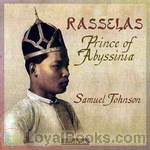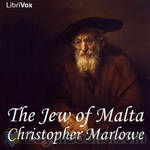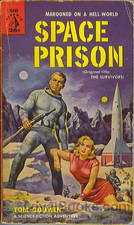|
Books Should Be Free Loyal Books Free Public Domain Audiobooks & eBook Downloads |
|
|
Books Should Be Free Loyal Books Free Public Domain Audiobooks & eBook Downloads |
|
Literature |
|---|
|
Book type:
Sort by:
View by:
|
By: Henri Bergson (1859-1941) | |
|---|---|
 Laughter : an Essay on the Meaning of the Comic
Laughter : an Essay on the Meaning of the Comic
| |
By: Katherine Pyle (1863-1938) | |
|---|---|
 The Counterpane Fairy
The Counterpane Fairy
A little boy, recuperating from a lengthy illness, is entertained by visits from the Counterpane Fairy, who treats him to stories associated with each of the squares in the counterpane (quilt) on his sickbed. She has him concentrate on one of the squares until it turns into something like a doorway into the story. Once inside the story, he becomes its lead character until it fades out as if he’s awakening from a dream. | |
By: Amy Steedman | |
|---|---|
 The Babe in the Bulrushes
The Babe in the Bulrushes
| |
 Joseph the Dreamer
Joseph the Dreamer
| |
By: Haggard, H. Rider (1856-1925) | |
|---|---|
 Ayesha, the Return of She
Ayesha, the Return of She
Ayesha, the return of She, is set 16 years after the previous novel She. Horace Holly and Leo Vincey have spent the years travelling the world looking for Ayesha, along the way they experience many adventures, including avalanches, glaciers and even death-hounds before finally arriving in the court of Kaloon. At the court, they hear tell of a woman who Leo suspects to be Ayesha, however things are never simple and conflict soon follows them to Ayesha’s court. (Summarised from Wikipedia) | |
By: Robert Williams Wood (1868-1955) | |
|---|---|
 How to Tell the Birds from the Flowers
How to Tell the Birds from the Flowers
How do you tell apart a parrot from a carrot? A plover from a clover? A bay from a jay? Although there are several ways of differentiating, R. W. Wood’s use of pun and rhyme is one of the most entertaining! | |
By: Samuel Johnson (1709-1784) | |
|---|---|
 Rasselas, Prince of Abyssinia
Rasselas, Prince of Abyssinia
In this enchanting fable (subtitled The Choice of Life), Rasselas and his retinue burrow their way out of the totalitarian paradise of the Happy Valley in search of that triad of eighteenth-century aspiration – life, liberty and happiness.According to that quirky authority, James Boswell, Johnson penned his only work of prose fiction in a handful of days to cover the cost of his mother’s funeral. The stylistic elegance of the book and its wide-ranging philosophical concerns give no hint of haste or superficiality... | |
 Preface to Shakespeare
Preface to Shakespeare
| |
 Johnson's Lives of the Poets
Johnson's Lives of the Poets
| |
 Lives of the English Poets : Waller, Milton, Cowley
Lives of the English Poets : Waller, Milton, Cowley
| |
 Notes to Shakespeare — Volume 01: Comedies
Notes to Shakespeare — Volume 01: Comedies
| |
 Lives of the English Poets : Prior, Congreve, Blackmore, Pope
Lives of the English Poets : Prior, Congreve, Blackmore, Pope
| |
By: Christopher Marlowe (1564-1593) | |
|---|---|
 The Tragical History of Doctor Faustus
The Tragical History of Doctor Faustus
The Tragical History of Doctor Faustus, normally known simply as Doctor Faustus, is a play by Christopher Marlowe, based on the Faust story, in which a man sells his soul to the devil for power and knowledge. Doctor Faustus was first published in 1604, eleven years after Marlowe's death and at least twelve years after the first performance of the play. | |
 The Jew of Malta
The Jew of Malta
Christopher “Kit” Marlowe (baptised 26 February 1564 – 30 May 1593) was an English dramatist, poet, and translator of the Elizabethan era. The foremost Elizabethan tragedian before William Shakespeare, he is known for his magnificent blank verse, his overreaching protagonists, and his own untimely death. The Jew of Malta (1589) is an original story of religious conflict, intrigue, and revenge, set against a backdrop of the struggle for supremacy between Spain and the Ottoman Empire in the Mediterranean... | |
 Hero and Leander
Hero and Leander
“Who ever lov’d, that lov’d not at first sight?” The wonder-decade of the English drama was suddenly interrupted in 1592, when serious plague broke out in London, forcing the closure of the theatres. Leading playwrights took to penning languorously erotic poetry to make ends meet: so we have Venus and Adonis, The Rape of Lucrece - and Marlowe’s blazing masterpiece, Hero and Leander. Marlowe’s poem became more notorious than either of Shakespeare’s, due not only to its homophile provocations but also to the scandal attaching to every aspect of Marlowe’s brief life, violently ended in a mysterious brawl, leaving the poem in an unfinished state... | |
 Tamburlaine the Great
Tamburlaine the Great
Tamburlaine the Great is the name of a play in two parts by Christopher Marlowe. It is loosely based on the life of the Central Asian emperor, Timur 'the lame'. Written in 1587 or 1588, the play is a milestone in Elizabethan public drama; it marks a turning away from the clumsy language and loose plotting of the earlier Tudor dramatists, and a new interest in fresh and vivid language, memorable action, and intellectual complexity. Along with Thomas Kyd's The Spanish Tragedy, it may be considered the first popular success of London's public stage... | |
 Tragical History of Doctor Faustus (1616 version)
Tragical History of Doctor Faustus (1616 version)
The Tragicall History of the Life and Death of Doctor Faustus, commonly referred to simply as Doctor Faustus, is a play by Christopher Marlowe, based on the Faust story, in which a man sells his soul to the devil for power and knowledge. Doctor Faustus was first published in 1604, eleven years after Marlowe's death and at least twelve years after the first performance of the play. "No Elizabethan play outside the Shakespeare canon has raised more controversy than Doctor Faustus. There is no agreement concerning the nature of the text and the date of composition... | |
 Edward II
Edward II
Christopher Marlowe's Elizabethan tragedy focuses on the downfall of King Edward II, whose love for his favorite courtier, Piers Gaveston, leads to rebellion. | |
 Massacre at Paris
Massacre at Paris
| |
 The Works of Christopher Marlowe, Vol. 3 (of 3)
The Works of Christopher Marlowe, Vol. 3 (of 3)
| |
By: Tom Godwin (1915-1980) | |
|---|---|
 Space Prison
Space Prison
AFTER TWO CENTURIES….The sound came swiftly nearer, rising in pitch and swelling in volume. Then it broke through the clouds, tall and black and beautifully deadly — the Gern battle cruiser, come to seek them out and destroy them. Humbolt dropped inside the stockade, exulting. For two hundred years his people had been waiting for the chance to fight the mighty Gern Empire … with bows and arrows against blasters and bombs! | |
 The Nothing Equation
The Nothing Equation
| |
 Cry from a Far Planet
Cry from a Far Planet
| |
 The Helpful Hand of God
The Helpful Hand of God
| |
 —And Devious the Line of Duty
—And Devious the Line of Duty
| |
By: Samuel Richardson | |
|---|---|
 Pamela, or Virtue Rewarded
Pamela, or Virtue Rewarded
Now first Published In order to cultivate the Principles of Virtue and Religion in the Minds of the YOUTH of BOTH SEXES.A Narrative which has its Foundation in TRUTH and NATURE; and at the same time that it agreeably entertains, by a Variety of curious and affecting Incidents, is intirely divested of all those Images, which, in too many Pieces calculated for Amusement only, tend to inflame the Minds they should instruct.(From the frontspiece of the first edition)Pamela tells the story of a 14 year old lady’s maid named Pamela whose master, Mr... | |
 Clarissa, or the History of a Young Lady
Clarissa, or the History of a Young Lady
Clarissa Harlowe, the tragic heroine of Clarissa, is a beautiful and virtuous young lady whose family has become very wealthy only in recent years and is now eager to become part of the aristocracy by acquiring estates and titles through advantageous pairings. Clarissa’s relatives attempt to force her to marry a rich but heartless man (Roger Solmes) against her will and, more importantly, against her own sense of virtue. Desperate to remain free, she is tricked by a young gentleman of her acquaintance, Lovelace, into escaping with him. However, she refuses to marry him, longing — unusual for a girl in her time — to live by herself in peace. | |